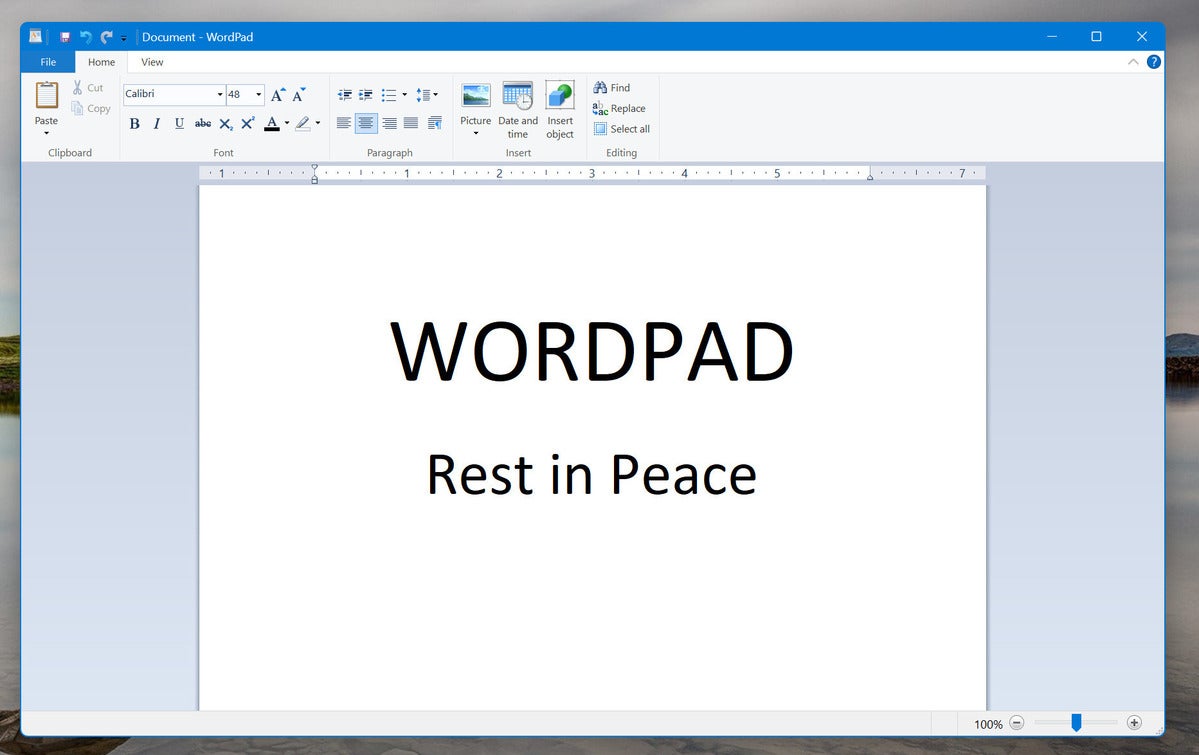
Microsoft bids adieu to WordPad

Technology giant Microsoft has discontinued WordPad, which had been part of every Windows operating system for the last 28 years.
“Starting with this build, the WordPad and People apps will no longer be installed after doing a clean install of the OS. In a future flight, WordPad will be removed on upgrade. WordPad will not be reinstallable. WordPad is a deprecated Windows feature,” said the Windows Insider blog announcing the discontinuation of WordPad.
Microsoft had listed WordPad as a “deprecated” app in September 2023. The company defines deprecation as “the stage of the product lifecycle when a feature of functionality is no longer in active development and may be removed in future releases of a product or online service.” Microsoft is now recommending the use of Microsoft Word for rich text documents like .doc and .rtf and Windows Notepad for plain text documents like .txt.
WordPad included features from both Notepad and MS Word in terms of text editor functionality.
“WordPad’s initial target audience was individual users who didn’t have access to MS Word but wanted something better than Notepad,” said Pareekh Jain, CEO at Pareekh Consulting. “A lot has changed in those 28 years, with new modes of text input in web and mobile apps, as well as increased penetration of MS Office. The utility of WordPad has declined.”
Waning functionality and popularity
WordPad had been losing its relevance as Rich Text Formatting (RTF) functionalities became easily accessible.
“WordPad, for all practical purposes, had become a redundant program in recent years,” said Deepak Kumar, founder analyst and chief research officer at BMNxt Business and Market Advisory. “For a long time, it did have its value as a free word processor with decent RTF capabilities for those who did not want to buy a paid word processor like Word. However, as more and more RTF capabilities got embedded in browser-based applications like emails, among other freely available options, the need for WordPad diminished.”
WordPad was not one of the popular Windows applications and is hardly likely to be missed by consumers or programmers, according to analysts. “Since it was not as basic as Notepad, it was not even sought after by programmers as a tool for reading source code and other such things. And, of course, it was a far cry from the more powerful source code editors such as Notepad++. So, as Microsoft plans to retire it in a future Windows release, there may hardly be a backlash from any diehard fans, as they are likely no longer around,” Kumar said.
Technology companies continuously need to evolve products and solutions in line with the evolving needs of the customers. “In this regard, Microsoft is making the right move,” Jain noted.
